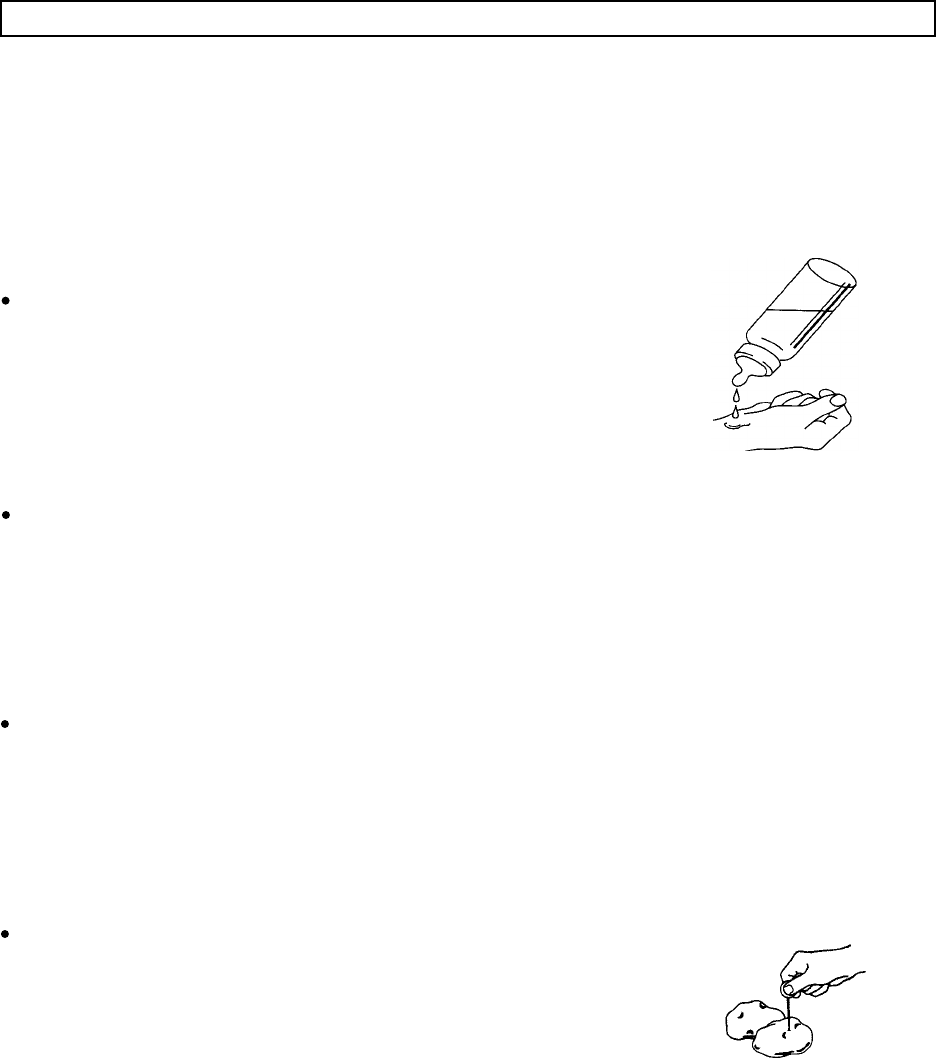
* When heating liquids, e.g. beverages or water, remember that the liquid can be heated beyond its
boiling point without bubbles appearing. This could result in a sudden boil-over of the liquid.
To prevent this situation:
1. Avoid the use of narrow necked containers.
2. Stir the liquid before putting the container in the oven.
3. Leave the container to stand for a short time and stir again before removing the container from
the oven.
Liquids in baby bottles:
1. Remove the inner cap and teat before putting the bottle in the
microwave oven.
2. When cooking is finished, check the liquid temperature. Do not
serve without doing this.
3. Shake before serving to distribute the heat evenly, avoiding risk
of burning.
MANUAL DEFROSTING
Remember that the package shape affects the defrosting time:
* Flat and rectangular packages defrost more quickly than thick locks.
* Separate the pieces when they begin to defrost, so that they defrost more quickly.
* Shield areas of food with aluminium foil if they start to become warm.
Use tooth-picks to hold the foil in place.
* It is better to under-thaw the food slightly and allow the process to finish during the standing time.
THE HUMIDITY CONTENT
As microwaves are attracted by humidity, the cooking time varies depending on the food’s water
content.
* Foods with a high water content, such as vegetables, fish and poultry, cook more quickly and
evenly than drier foods such as rice and beans which require water for microwave cooking.
* Humidity in foods can produce condensation on the walls of the oven or inside the door. This is
normal during cooking. It can be reduced by covering the container during cooking.
PRESSURE IN FOODS
Many foods are covered with a tight skin or a membrane. To relieve the
internal pressure:
* Pick the skin or membrane with a fork, preventing the food exploding
and deforming, e.g.: potatoes, sweet potatoes, chicken livers, sausages,
egg yolks and some fruits.
16
USEFUL HINTS


















